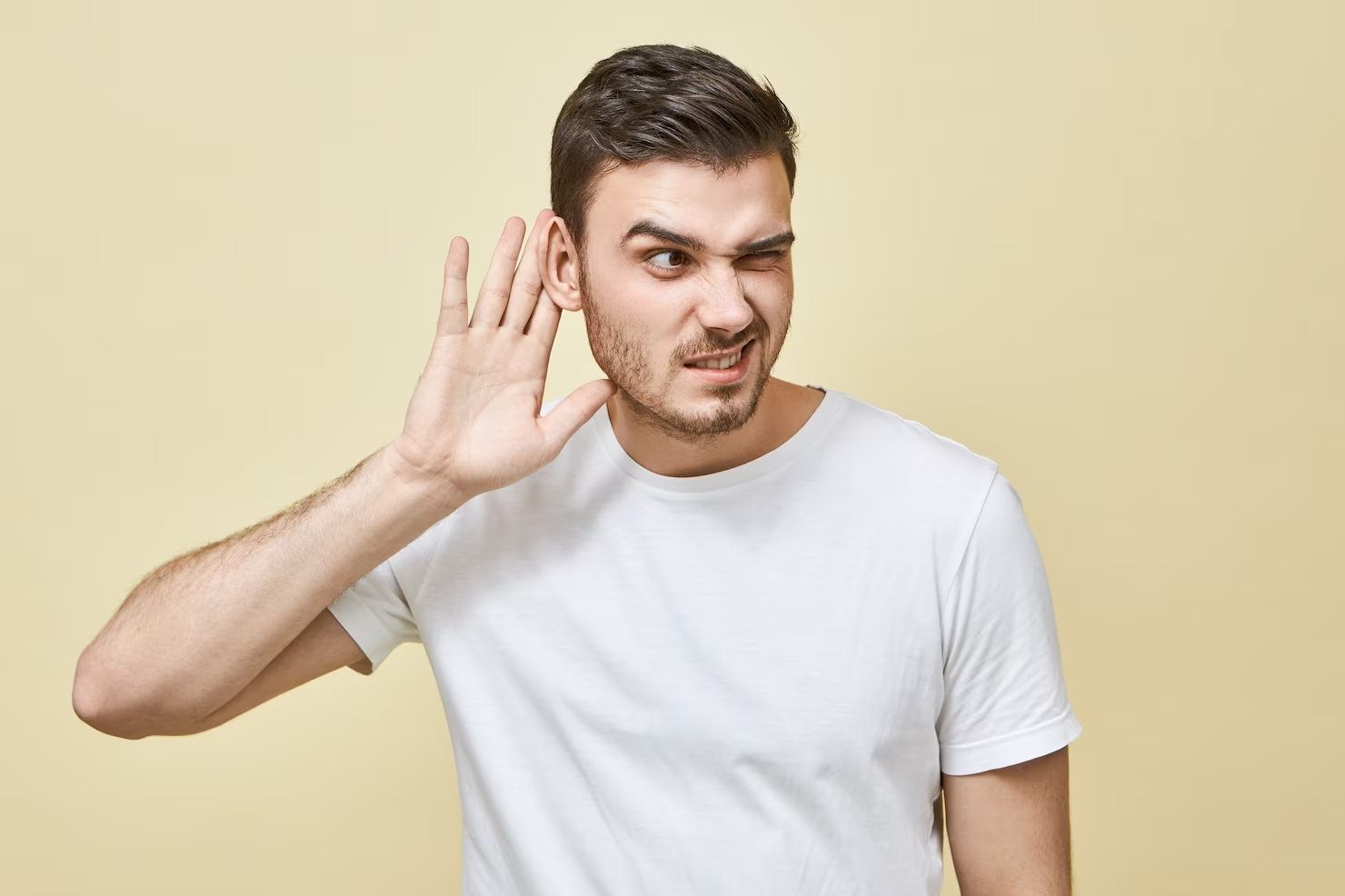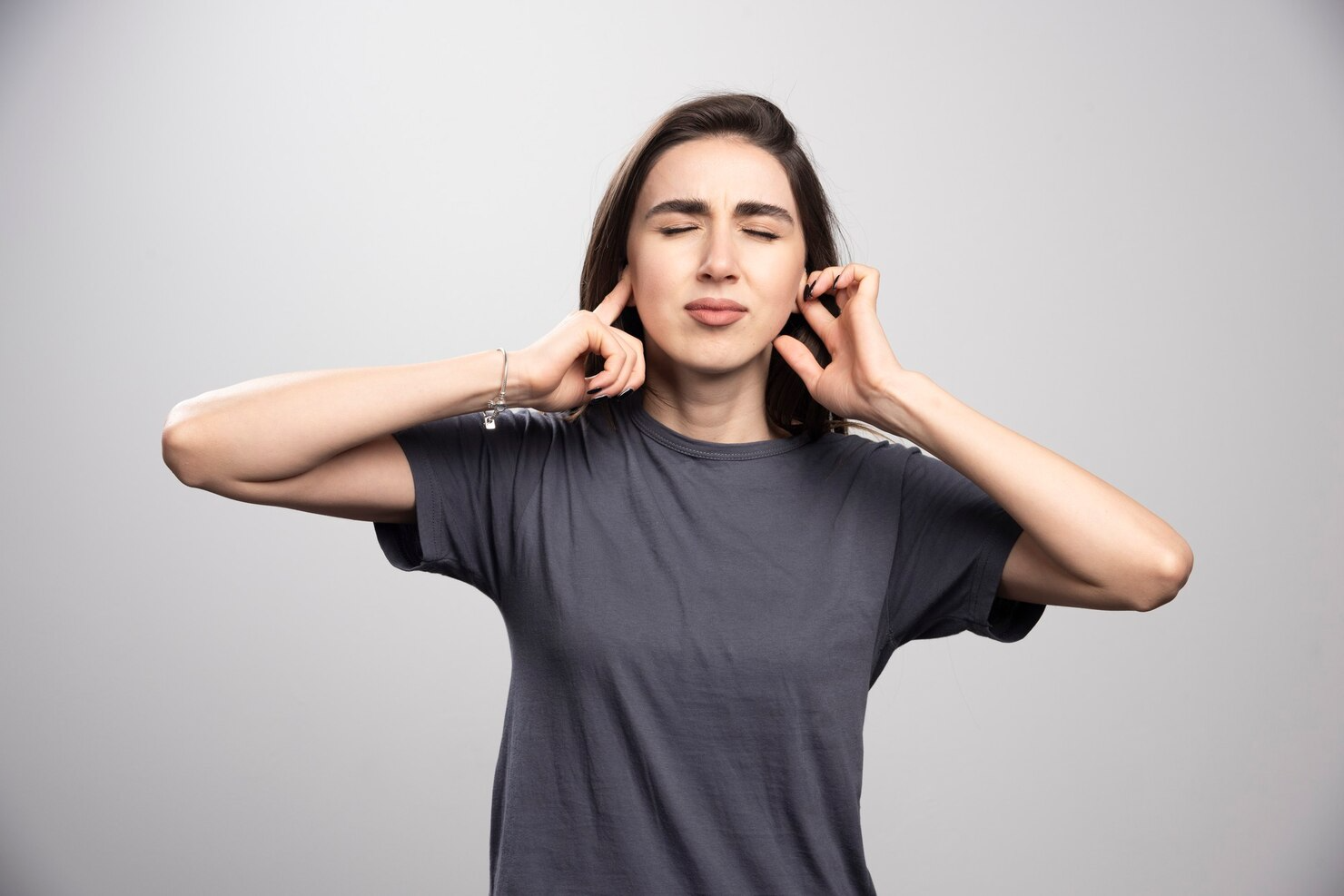As we try to figure out what hearing aids have to do with vertigo, it's important that we first define our terms. Vertigo is a medical condition that causes you to feel dizzy and like you or your surroundings are moving or spinning. Problems in the inner ear or brain are often to blame. On the other hand, hearing aids are tools made to help people with hearing loss hear better.
But can these useful things make you feel dizzy? To answer this question, we need to learn more about how the ear, hearing, and balance work, as well as how hearing aids may affect these things.
The Ear: A Center for Balance and Hearing
Your ears do more than just help you hear. They also help you keep your balance. The inner ear's labyrinth is a delicate and complicated system that is full of fluid and covered with tiny hair-like sensors. These sensors can tell when something moves or changes position. When this delicate system is upset, vertigo can happen.
In the inner ear, there is a close connection between the cochlea, which turns sound waves into nerve signals for the brain, and the vestibular system, which helps you keep your balance. Because of this link, hearing problems can sometimes make it hard to keep your balance, which can lead to vertigo.
Possible Link Between Hearing Aids and Vertigo
So where do hearing aids come in? Hearing aids don't usually cause vertigo on their own. They work by making sound waves louder, which helps people with hearing loss hear better. Most of the time, wearing hearing aids won't mess up the inner ear's balance system and cause vertigo.
There are, however, some indirect ways in which hearing aids could possibly cause dizziness or vertigo.
Fitting or putting in the hearing aid wrong: If the hearing aid isn't fitted or put in right, it can put pressure on the ear canal and make you feel uncomfortable or even dizzy. To make sure the hearing aid fits right, it's important to work with an audiologist.
The Occlusion Effect is when your ear is blocked by something, like a hearing aid, and sounds, especially low-frequency sounds like your voice, get louder inside your ear. Some people can become disoriented by this sudden change in how they hear, which could lead to dizziness or a feeling similar to vertigo.
Acclimatization Problems: When using a hearing aid for the first time, especially for people with severe hearing loss, the sudden amplification of sounds can be disorienting and, in rare cases, make you feel dizzy.
How to use hearing aids right and stop vertigo
How can we reduce the chance of vertigo when using hearing aids if we know about these possible problems?
Correct Fitting and Adjustment: Make sure a professional does the right job of fitting and adjusting your hearing aid. If you feel uncomfortable, don't be afraid to go back to your audiologist to get it adjusted again.
Gradual Acclimatization: Give yourself time to get used to your hearing aids. It's best to slowly add more time each day that you wear your hearing aids so that your brain can get used to the new level of sounds.
Proper Care: Keeping your hearing aids clean can lower your chance of getting ear infections, which can cause dizziness.
Healthy Lifestyle Choices: Regular exercise, a balanced diet, less salt, and staying away from caffeine and alcohol are all things that can help lower the risk of vertigo.
In the end, there is an indirect link between hearing aids and vertigo, but it's not common for these devices to make people feel dizzy or sick to their stomach. Keeping a healthy lifestyle and making sure your gear fits right can greatly reduce any possible risks. If you have persistent vertigo, you should see a doctor because it could be a sign of a serious health problem, like Ménière's disease or vestibular neuritis, that needs to be treated.
Also, don't be afraid to talk to your audiologist or hearing aid provider if you think your hearing aid is making you feel uncomfortable or dizzy. You might be able to fix the problem by making a change to how your hearing aid fits or how it is set up.
Getting the right balance between better hearing and overall health
In the big picture, the benefits of using hearing aids are much more important than the small chance of getting vertigo or other related symptoms. They are meant to make your life better, help you communicate better, and give you more confidence. Most of the time, hearing aids don't cause vertigo, and when they do, it's usually only in rare situations that can be fixed with help from a professional and careful handling.
So, do hearing aids make you dizzy? Most of the time, the simple answer is no. But if we know how complicated our bodies are, how our ears help us keep our balance, and what other effects hearing aids might have, we can use them in a smart way. Now that we know this, we can enjoy the benefits of better hearing while avoiding or minimizing any possible problems.
Always keep in mind that your health and comfort should come first. If your hearing aids are giving you vertigo or causing any other health problems, you should see a doctor. A thorough evaluation and personalized care from a trusted healthcare provider are the only things that can compare.
Overall, the way hearing aid technology and the human body work together is interesting and helpful. They let millions of people all over the world get back in touch with their surroundings, talk to their loved ones, and listen to the sounds of life that they've missed. We can make sure this valuable tool works well for us without hurting our overall well-being if we use it with care and understand it.
Remember to pay attention to what your body is telling you and enjoy the power of better hearing with the help of modern technology. With this information, we can all find our way through the complex dance of hearing and balance, no matter where the beat of life takes us.
But can these useful things make you feel dizzy? To answer this question, we need to learn more about how the ear, hearing, and balance work, as well as how hearing aids may affect these things.
The Ear: A Center for Balance and Hearing
Your ears do more than just help you hear. They also help you keep your balance. The inner ear's labyrinth is a delicate and complicated system that is full of fluid and covered with tiny hair-like sensors. These sensors can tell when something moves or changes position. When this delicate system is upset, vertigo can happen.
In the inner ear, there is a close connection between the cochlea, which turns sound waves into nerve signals for the brain, and the vestibular system, which helps you keep your balance. Because of this link, hearing problems can sometimes make it hard to keep your balance, which can lead to vertigo.
Possible Link Between Hearing Aids and Vertigo
So where do hearing aids come in? Hearing aids don't usually cause vertigo on their own. They work by making sound waves louder, which helps people with hearing loss hear better. Most of the time, wearing hearing aids won't mess up the inner ear's balance system and cause vertigo.
There are, however, some indirect ways in which hearing aids could possibly cause dizziness or vertigo.
Fitting or putting in the hearing aid wrong: If the hearing aid isn't fitted or put in right, it can put pressure on the ear canal and make you feel uncomfortable or even dizzy. To make sure the hearing aid fits right, it's important to work with an audiologist.
The Occlusion Effect is when your ear is blocked by something, like a hearing aid, and sounds, especially low-frequency sounds like your voice, get louder inside your ear. Some people can become disoriented by this sudden change in how they hear, which could lead to dizziness or a feeling similar to vertigo.
Acclimatization Problems: When using a hearing aid for the first time, especially for people with severe hearing loss, the sudden amplification of sounds can be disorienting and, in rare cases, make you feel dizzy.
How to use hearing aids right and stop vertigo
How can we reduce the chance of vertigo when using hearing aids if we know about these possible problems?
Correct Fitting and Adjustment: Make sure a professional does the right job of fitting and adjusting your hearing aid. If you feel uncomfortable, don't be afraid to go back to your audiologist to get it adjusted again.
Gradual Acclimatization: Give yourself time to get used to your hearing aids. It's best to slowly add more time each day that you wear your hearing aids so that your brain can get used to the new level of sounds.
Proper Care: Keeping your hearing aids clean can lower your chance of getting ear infections, which can cause dizziness.
Healthy Lifestyle Choices: Regular exercise, a balanced diet, less salt, and staying away from caffeine and alcohol are all things that can help lower the risk of vertigo.
In the end, there is an indirect link between hearing aids and vertigo, but it's not common for these devices to make people feel dizzy or sick to their stomach. Keeping a healthy lifestyle and making sure your gear fits right can greatly reduce any possible risks. If you have persistent vertigo, you should see a doctor because it could be a sign of a serious health problem, like Ménière's disease or vestibular neuritis, that needs to be treated.
Also, don't be afraid to talk to your audiologist or hearing aid provider if you think your hearing aid is making you feel uncomfortable or dizzy. You might be able to fix the problem by making a change to how your hearing aid fits or how it is set up.
Getting the right balance between better hearing and overall health
In the big picture, the benefits of using hearing aids are much more important than the small chance of getting vertigo or other related symptoms. They are meant to make your life better, help you communicate better, and give you more confidence. Most of the time, hearing aids don't cause vertigo, and when they do, it's usually only in rare situations that can be fixed with help from a professional and careful handling.
So, do hearing aids make you dizzy? Most of the time, the simple answer is no. But if we know how complicated our bodies are, how our ears help us keep our balance, and what other effects hearing aids might have, we can use them in a smart way. Now that we know this, we can enjoy the benefits of better hearing while avoiding or minimizing any possible problems.
Always keep in mind that your health and comfort should come first. If your hearing aids are giving you vertigo or causing any other health problems, you should see a doctor. A thorough evaluation and personalized care from a trusted healthcare provider are the only things that can compare.
Overall, the way hearing aid technology and the human body work together is interesting and helpful. They let millions of people all over the world get back in touch with their surroundings, talk to their loved ones, and listen to the sounds of life that they've missed. We can make sure this valuable tool works well for us without hurting our overall well-being if we use it with care and understand it.
Remember to pay attention to what your body is telling you and enjoy the power of better hearing with the help of modern technology. With this information, we can all find our way through the complex dance of hearing and balance, no matter where the beat of life takes us.


